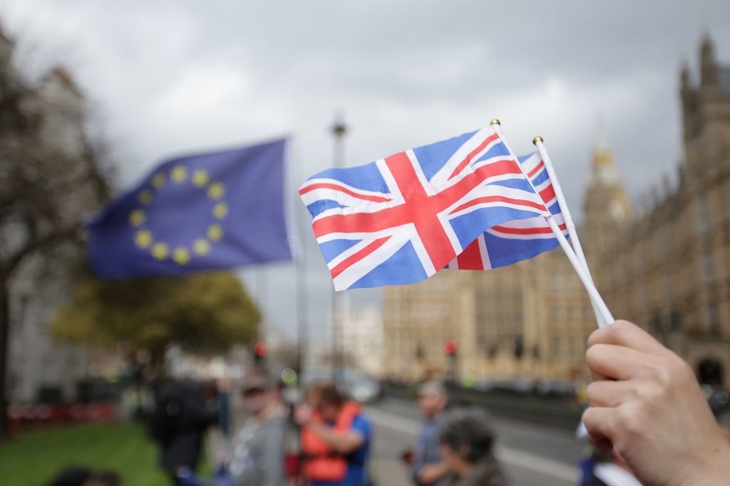Most diplomats in Brussels will tell you that Theresa May has just embarked upon a fool’s errand, that Britain might wish for a free-trade deal with the European Union but will have to learn that it can’t cherry-pick. Anyway, they say, nothing of any value can be agreed in two years. This received wisdom can be heard, under various iterations, in most capitals in Europe — and it’s natural that the EU will be sore, perhaps a little defensive. But there is a free-trade deal to be struck.
First, a declaration: I didn’t want Britain to leave the EU. I’m a Swede running a free-trade thinktank in Brussels and can tell you that the UK’s absence will be sorely felt by all of its allies. A great many governments will feel the same, but to deny Britain a free-trade agreement would be an extraordinary act of self-harm, for all sides. To use the tariffs and rules of the World Trade Organisation would mean greater barriers and slower trade. Economic logic may not be a good basis for predicting policy in this age of growing economic nationalism, but we’re not talking about a complex, labyrinthine Sykes-Picot endeavour. The task for trade negotiators now is to avoid a collapse of current trade, not to break up markets for new trade.
Europe’s businesses are pretty strong – and determined to lobby hard
The model being pursued by Mrs May is a new alliance of light integration and soft rules. She wishes to leave the EU, the single market and the customs union — so any future trade agreement will look very different. And that suits the EU well because many of its leaders want to keep a trade premium for members and raise the cost for British exporters. So no more common standards for consumer and environmental policy or joint rules for farm subsidies and state aid to industries. ‘Passporting’ rights for the financial sector will probably go, making life far harder for the City of London.
Yes, Britain will be able to control its flows of foreign workers. In return, the likes of Austria, Finland and Spain will set new rules for British corporate ‘temporary visitors’ posted there for short-term work.
But there’s a limit to tit-for-tat protectionism. Just consider the corporate interests of Europe. A free-trade deal with Britain is certainly in the interests of Spain and Italy, who run a trade surplus with Britain. For Germany, which exports €50 billion more to the UK than Brits buy from Germans, it’s a no-brainer. Cars, chemicals and machinery — these strong export sectors for Germany are all at risk if Britain copies EU tariffs on cars and imposes its own regulation on hazardous chemicals. And French farmers and winemakers will lobby just as hard: they don’t want to see British duties on beaujolais and camembert. More economically significantly, the French government has strong invested interests in the British nuclear and transport sectors, including rail and automotive.
The Brits often tease the French for their protectionism, but the instinct to protect companies makes the case for a free trade deal. With big investments like High Speed 2, French companies would want to make sure they can sell at good terms to their clients on the other side of the channel. And for the Dutch, with Europe’s largest trading port in Rotterdam, keeping tariffs at zero is important to maintain their advantage as a hub for Britain’s maritime trade. The EU may behave like a wounded beast, but Europe’s businesses are pretty strong — and determined to lobby hard for free trade.
For other parts of Europe, the concern is people: Poland’s priority will be to defend the rights of the 900,000 Poles in the UK — many of them sending money back home. Estonia’s chief interest will be to keep Britain as a leader for Europe’s security. The last of 800 troops from 5th Battalion The Rifles settle in Estonia this month —easing Estonian nerves and underlining the value of having Britain as an ally.
All this does not diminish the difficulties that Britain will face in its Brexit negotiations. In Brussels, technicalities can take years to resolve — and Mrs May has a deadline of 24 months. Much as politics can spoil the prospects for a good Brexit deal, trade isn’t the sticking point. The EU, for all its federalist pretences, is simply the creation of various nation states, whose leaders are only too aware of how much their people have to gain by preserving good relations and open trade with Britain. There will be plenty of drama, plenty of demanding the impossible. But the bottom line is fairly simple: Europe needs jobs, Europe needs growth. A free-trade deal between the UK and the EU can be expected for a simple reason: neither side can afford to throw away huge volumes of trade.






Comments